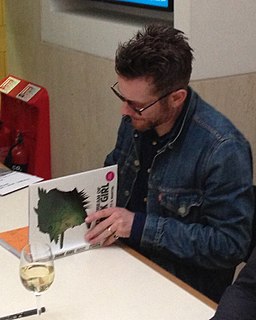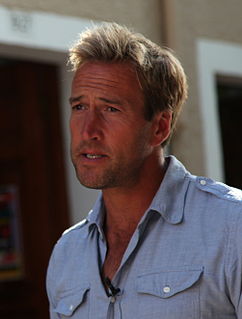A Quote by Patrick Bergin
Helping Africans navigate the transition to modernity with a huge, wonderful wildlife resource still intact.
Related Quotes
With good planning, Africa can have cities, farms, factories, export processing zones. But if the political will is there, the huge areas - the Serengeti, the Okavango, the Kalahari, Kruger - these wonderful, huge places for wildlife could still be set aside and protected, and be treasures for humanity for many generations to come.
Seafood is simply a socially acceptable form of bush meat. We condemn Africans for hunting monkeys and mammalian and bird species from the jungle yet the developed world thinks nothing of hauling in magnificent wild creatures like swordfish, tuna, halibut, shark, and salmon for our meals. The fact is that the global slaughter of marine wildlife is simply the largest massacre of wildlife on the planet.
Many locals in east Africa are calling for fences to separate wildlife and people. They argue it will reduce conflict and also make it easier to protect the wildlife from poachers. From my experience in Tanzania, no fence and no militia will hold back the tide of poachers drawn by the huge sums of money at stake.
In most of the world, we have only small remnants of the wildlife that once existed. Africa has the most astonishing wildlife still. Now Africa is modernizing. In the next twenty years, Africa is modernizing economically, and one of two things is going to happen. Either Africa will be just like the rest of the world and it's say goodbye to wildlife. Or, we can learn from the mistakes made in the rest of the world.
The path to relative economic, social and ecological sustainability is guaranteed to be littered with failures of every nature and scale. If we recognize them and learn from them, the transition will proceed faster and in more resource-efficient ways. If, on the other hand, we prefer the short-term comfort of burying our failures, or of blaming scapegoats, the transition will be significantly slowed, or could even be derailed completely.
Traditionally it's been difficult for Africans to play over here, mainly because the African calendar is very different to that in Europe. Most of the coaches over here can't accept that we have to go back home to play at the Nations' Cup for a month while the season is still on over here. That made people reluctant to sign Africans.

































